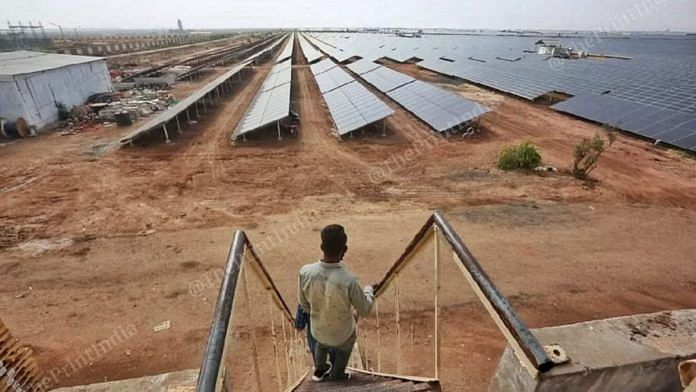Today is World Youth Skills Day. Eight years ago, on this day, India launched the National Skill Development Mission to provide adequate training in market-relevant skills to its youth. Now, as it becomes the world’s most populous country and undertakes ambitious decarbonisation efforts, we need to level up our skill development initiatives to be ready for the green jobs of the future. According to an analysis by the Council on Energy, Environment and Water, India will potentially create 3.4 million jobs in the sunrise sectors of solar and wind energy by 2030, 1.2 million in the electric vehicle transition by 2030, and another 1.8 million in the servicing industry for sustainable cooling solutions by 2037. Similar high job potential also exists in other emerging green sectors of biofuels, circular economy of waste and nature-based solutions.
To meet the growing demand for a skilled workforce, the government has undertaken significant efforts to launch a series of skill development initiatives. These range from the Suryamitra programme for solar energy projects, the Vayumitra programme for wind energy projects, and the National Green Skill Development Programme for diverse initiatives related to forest and environment management. However, these initiatives – and similar others that are to be designed for new and emerging green economic sectors – will need to address challenges of low-placement outcomes, high dropout rates and limited participation of women. We propose three must-have foundational aspects for designing these skill development initiatives.
Prioritise demand-driven skills
Improve placement outcomes by incubating demand-driven skill development programmes. There is a need to engage with industry as the primary demand driver for job creation. Employers are best suited to both project their demand and map emerging skills needs. Prioritising the recruit-train-deploy model, as in the Pradhan Mantri Kaushal Vikas Yojana, onboarding an industry partner early into the training programme is important. This industry partner can either train directly or leverage an existing training centre before deploying the trainees upon their course completion and certification. It will improve the training centres’ employment outcomes and reduce the curriculum gap in their courses. Further, integrating the separate employment portals being run under the National Skill Development Mission, Aatmanirbhar Bharat, and various other schemes into a consolidated directory, providing information to both job seekers and job creators, can reduce the information gap, increase the labour market pool and strengthen their monitoring and evaluation.
Support the unemployed
Provide continued support for unemployed trainees. Currently, all training centres are expected to conduct post-placement tracking of recruited trainees to monitor their career progression, retention and other parameters. Future initiatives should extend similar support to unemployed trainees. This support involves providing continued post-training counselling through information about new job postings, offering job referrals, and encouraging participation in rozgar melas (employment fairs). A notable precedent is the Surya Mitra app that facilitates the continued engagement of technicians trained under the scheme, using GPS technology to connect them with customers in their vicinity for support related to servicing, maintenance and installation of solar-powered systems.
Also read: IIT, IIM is key to India’s knowledge diplomacy with Africa
Women-centric programmes are key
Incorporate gender-inclusive approaches to address the skills needs of women. Participation of women in the existing skilling and training programmes remains low and mainly restricted to stereotypical sectors of apparel, beauty, wellness and caregiving.This contributes to low levels of female participation in the labour market. According to a 2018 global survey by the International Renewable Energy Agency (IRENA), women occupied 32 per cent of the jobs in renewable energy, with further lower presence (at 28 per cent) in STEM jobs. Future programmes must be designed to be women-inclusive and have clear monitoring metrics to measure their participation rates. Women-centric programmatic designs include hybrid skilling support, self-paced completion schedules, gender-friendly infrastructure facilities, and the entrepreneurial skills of sales and marketing. Finally, combining these measures with gender-based performance indicators for training centres can further promote women’s participation in emerging and green value chains.
India is currently living through a demographic dividend, and its decarbonisation journey will unfold parallel to a growing labour force. By investing in industry-linked and outcome-based skilling programmes with gender-inclusive design principles, we can empower our youth to harness the vast employment potential of India’s emerging green economy.
Tarun Mehta is a Research Analyst, and Gunjan Jhunjhunwala is a Programme Lead at the Council of Energy, Environment and Water (CEEW), an independent, not-for-profit research organisation. They tweet @Taarun_Mehtaa and @GunjanJ3, respectively.
(Edited by Zoya Bhatti)



